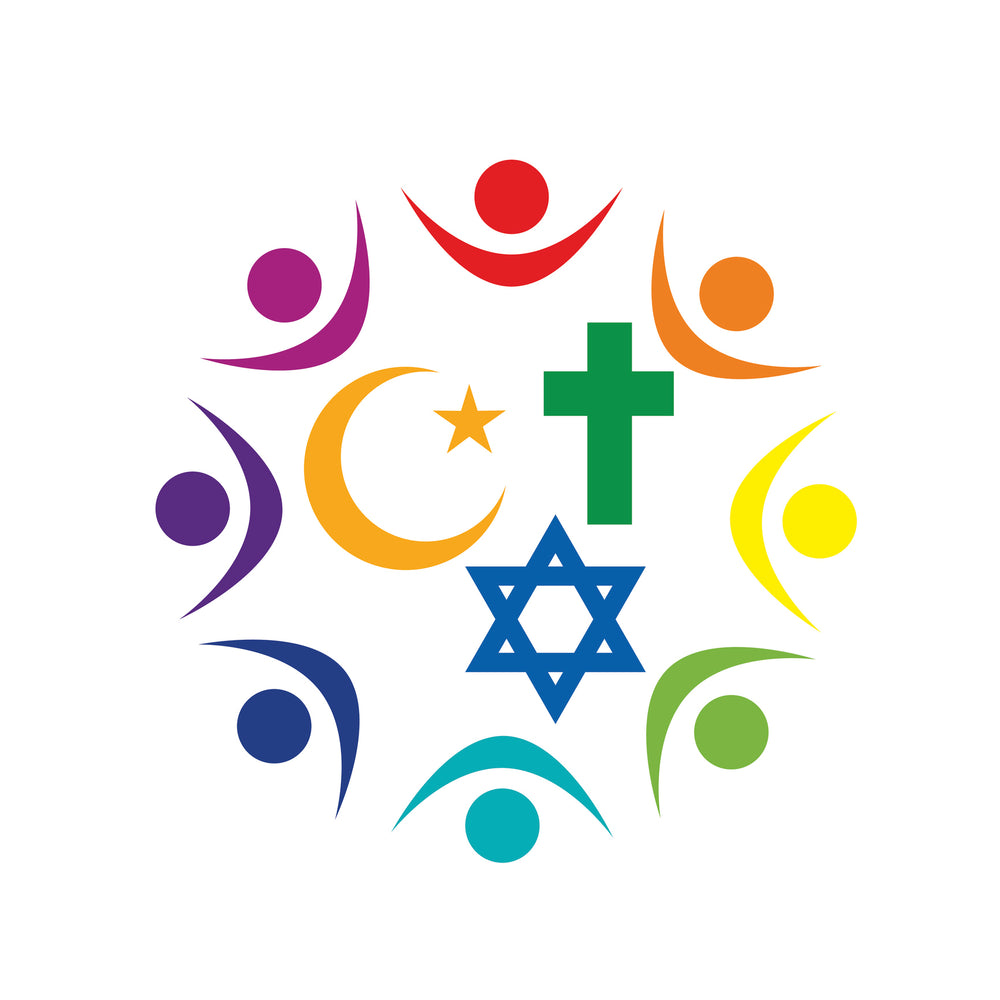Generations: A Journey Through Time
By Darrell Griffin
Introduction
Generations are the markers of societal evolution, each imbued with distinct characteristics shaped by the events, culture, and values of their time. From the dawn of the 20th century to the present day, we've witnessed the rise and fall of generations, each leaving its unique imprint on the tapestry of history. Join us on a journey through time as we explore the defining attributes of each generation, from their political ideologies to their perspectives on work, family, and leisure.
The Gilded Generation (1901 - 1924)

Beginning in the wake of the Gilded Age, this generation witnessed the dawn of the modern era. Shaped by the aftermath of World War I and the Roaring Twenties, they held traditional values close while embracing the rapid societal changes around them. Politically, they leaned towards conservatism, favoring stability and order. Their approach to work was diligent and industrious, often seeking secure employment in burgeoning industries. While frugal in their spending, they valued experiences over material possessions. Family was paramount, with a strong emphasis on duty and responsibility. Religious beliefs were deeply ingrained, providing a moral compass in a rapidly changing world. In their leisure time, they enjoyed simple pleasures such as community gatherings and outdoor activities.
The Silent Generation (1925 - 1945)
Born into the crucible of the Great Depression and raised during World War II, the Silent Generation emerged as stoic survivors. Politically, they tended towards moderation, valuing compromise and stability. Their approach to work was characterized by loyalty and dedication, often staying with a single employer for their entire careers. Prudent savers, they prioritized financial security and stability. Family held a central place in their lives, with a focus on unity and respect for authority. While religious beliefs remained important, there was a gradual shift towards questioning traditional dogma. In their leisure time, they found solace in more solitary pursuits such as reading, gardening, and listening to music.

significant events that happened during 1925-1945
significant events that happened during 1946-1964
Coming of age amidst economic uncertainty and social upheaval, Generation X forged their own path forward. Politically, they were skeptical of institutions, valuing pragmatism and independence. Their approach to work was marked by a desire for work-life balance and career flexibility. Savvy savers, they prioritized financial independence and early retirement planning. Family structures became more diverse, with an emphasis on individual autonomy and non-traditional arrangements. Religion played a less central role, with many exploring spirituality on their own terms. In their leisure time, they embraced technology, with video games, computers, and the emerging internet shaping their recreational activities.

Millennials (1981 - 1996)
Raised in the digital age, Millennials are characterized by their interconnectedness and idealism. Politically, they are progressive, advocating for social justice and environmental sustainability. Their approach to work is defined by a desire for purpose and flexibility, often prioritizing experiences over traditional career paths. Despite facing economic challenges, they are adept at leveraging technology for financial management and entrepreneurship. Family values remain important, but with an emphasis on inclusivity and diversity. Spirituality takes on a more personalized and eclectic form, with many exploring alternative belief systems. Recreation is heavily influenced by technology, with social media, streaming services, and gaming shaping their leisure activities.
Generation Z (1997 - Present)
Born into a world of rapid technological advancement and globalization, Generation Z is redefining the landscape once again. Politically, they are socially conscious and digitally savvy, using social media as a platform for activism and advocacy. Their approach to work is characterized by a desire for flexibility, entrepreneurship, and a sense of purpose. Pragmatic yet mindful spenders, they prioritize experiences and sustainability in their consumption habits. Family dynamics continue to evolve, with a focus on open communication and acceptance of diversity. While many are spiritual, they are less likely to adhere to traditional religious institutions. Recreation revolves around digital platforms, but there is also a resurgence of interest in outdoor activities and experiences.

Significant Events That Happened During 2020-2024 Year By Year
Furthermore, global markets felt the ripple effects, with fluctuations in oil prices and concerns over food security due to Ukraine's pivotal role as a grain exporter. The crisis underscored the fragility of international relations and set a new precedent for geopolitical dynamics in the 21st century.
- Advances In Technology And Space Exploration. In 2023, the realm of technology and space exploration witnessed profound breakthroughs that not only showcased human ingenuity but also hinted at a future brimming with possibilities. This year was marked by significant advancements in quantum computing, where researchers achieved new milestones in computational speed and encryption security, promising a revolution in data processing and cybersecurity. Meanwhile, artificial intelligence (AI) systems became more sophisticated, with innovations that enhanced their ability to understand complex human emotions and intentions, thereby improving human-AI interactions.
- In space exploration, 2023 was a banner year. NASA's Artemis program made strides towards returning humans to the Moon by successfully testing its Space Launch System (SLS) and Orion spacecraft. Additionally, private sector achievements included SpaceX's further development of the Starship spacecraft, aimed at enabling future Mars colonization. These milestones not only expanded our understanding of the cosmos but also laid down foundational steps for humanity's multi-planetary aspirations.
15. 2024:
- Emerging Trends In Global Health And Politics As we peer into the horizon of 2024, emerging trends in global health and politics forecast transformative shifts. Amidst the lingering shadows of a pandemic, the world gravitates towards holistic health paradigms, emphasizing mental well-being and preventive care alongside traditional medicine. This approach reflects a broader societal acknowledgment of interconnected health determinants—spanning environmental conditions to socioeconomic statuses.
- In the political arena, digital diplomacy and cybersecurity emerge as pivotal elements shaping international relations. Nations prioritize fortifying digital infrastructures against cyber threats, recognizing their critical role in national security. Concurrently, there's a move towards more inclusive governance models. Grassroots movements gain momentum, pressuring governments to adopt policies that reflect diverse societal needs and voices. As these trends unfold, 2024 projects to be a year where health and politics converge on pathways toward resilience and inclusivity.
- The Economic Rollercoaster: From 2020's Downturn To 2024's Recovery. The period from 2020 to 2024 was marked by unprecedented economic fluctuations, beginning with the severe global downturn in 2020 due to the COVID-19 pandemic. Lockdowns and restrictions across the world resulted in a historic contraction of economies, with millions losing their jobs and many businesses facing closure. However, as vaccination campaigns gained momentum in 2021, there was a cautious optimism for recovery.
- Despite facing challenges such as supply chain disruptions and inflationary pressures, global economies began to show signs of resilience. By 2022, stimulus measures and adaptation to new market realities fueled a robust rebound in some sectors. The journey towards economic stabilization continued into 2023 and by 2024, most economies had not only recovered but also started to experience growth, completing a remarkable turnaround from the depths of the previous years' crises.
- Cultural Revolutions: How Society Changed From 2020 To 2024. Between 2020 and 2024, society underwent a profound cultural transformation. The global pandemic of 2020 was a catalyst for change, shifting the dynamics of work, entertainment, and social interactions towards digital realms. This period also saw a significant rise in awareness and activism around social justice issues, notably racial equality and environmental sustainability. The Black Lives Matter movement gained unprecedented global momentum in 2020, leading to widespread discussions about systemic racism.
Meanwhile, the urgency of climate change spurred innovative environmental movements and policies. Furthermore, these years witnessed a renaissance in community-driven support systems, as people worldwide found new ways to connect and assist each other amidst crises. Collectively, these shifts not only reflected the challenges of the times but also showcased humanity's resilience and capacity for adaptation and solidarity.
How are generational groups designated with their names, and how is it decided when the generation starts and ends?
The designation and naming of generational groups, as well as the determination of their starting and ending points, are largely based on cultural, demographic, and historical factors. There is no universally accepted method for naming or delineating generations, and different scholars, sociologists, and demographers may use slightly different criteria. However, several common approaches are often employed:
Demographic Trends
Generations are often defined by birth cohorts, typically spanning around 15 to 20 years. The starting point of a generation is usually marked by a significant cultural or historical event that has a lasting impact on those born during that time. For example, the Baby Boomer generation is defined by the post-World War II baby boom, while Generation X is often associated with the decline in birth rates following the baby boom.
Shared Experiences
Generations are often characterized by the shared experiences, values, and attitudes of individuals who came of age during a particular time period. These experiences can include social, political, economic, and technological events that shape the worldview of a generation. For instance, the Silent Generation is defined by those who experienced the Great Depression and World War II during their formative years.
Cultural Markers
Cultural markers such as music, fashion, technology, and popular culture can also play a role in defining generations. These markers reflect the unique cultural milieu in which each generation grows up and helps to distinguish one cohort from another. For example, Generation X is often associated with the rise of MTV and the emergence of grunge music in the 1990s.
Naming Conventions
Generational names are often coined based on prominent characteristics or stereotypes associated with a particular cohort. These names may be derived from popular culture, historical events, or demographic trends. For example, the Millennials are named for coming of age at the turn of the millennium, while Generation Z is named for being the "next generation" after Generation Y (Millennials).
Conclusion
Overall, the naming and delineation of generational groups are subjective and can vary depending on the perspective of the researcher or commentator. Generational boundaries are often fluid, and there is often overlap between adjacent generations as individuals may exhibit traits or behaviors from both cohorts. Nonetheless, the concept of generations provides a useful framework for understanding how different groups of people are shaped by the unique circumstances of their time.
As we reflect on the journey through the generations, it becomes clear that each cohort carries with it a unique set of values, beliefs, and aspirations. While the world may change, the human spirit remains resilient, continually adapting and evolving in response to the challenges and opportunities of each era. As we look towards the future, we can only wonder what new chapters will be written by the generations yet to come.
.








